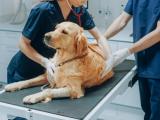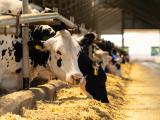Feb 7, 2008 (CIDRAP News) The US Department of Agriculture (USDA) recently signaled that a Canadian company is in a good position to secure the conditional license it needs to market an Escherichia coli O157:H7 vaccine for cattle that could reduce contamination levels in food.
Bioniche Life Sciences, based in Belleville, Ont., said it received a notice that the latest data for its vaccine meets the USDA's "expectation of efficacy" standard, allowing the company to seek a conditional license, according to a Feb 5 press release from the company. To get the preliminary license, the company must develop a plan to collect enough data to move the vaccine toward full licensure, the Bioniche statement said.
As soon as Bioniche receives the conditional license, it can sell the vaccine in the United States if at least one step in the manufacturing process takes place on US soil and the company doesn't use a trademark name for the vaccine, Bioniche said.
"This is a large step forward for the E coli O157:H7 vaccine," Graeme McRae, president and chief executive officer of Bioniche, said in the press release. "The granting of a US conditional license will permit US beef and dairy producers access to a scientifically validated means to reduce the risk of E coli O157:H7 contamination."
The organism doesn't sicken cattle but can be lethal to humans, producing a toxin that causes diarrhea, often bloody, and abdominal cramps, but typically no fever. Patients with E coli O157:H7 illness usually recover in 5 to 10 days, but 2% to 7% develop hemolytic uremic syndrome, a potentially fatal form of kidney failure.
Bioniche says its vaccine prevents the E coli O157:H7 organism from attaching to the intestines of vaccinated cattle, reducing replication within the animal and shedding to the environment.
Recent foodborne outbreaks of E coli O157:H7 have sickened hundreds of patients. In 2006, for example, investigators said a nationwide outbreak linked to fresh spinach could have been caused by contamination from cattle grazing near the spinach fields. In 2007, beef producers issued several recalls because of E coli O157:H7 contamination in ground beef.
Rick Culbert, president of Bioniche Food Safety, estimated in the press release that there are 97 million cattle in the United States, many of which shed E coli O157:H7.
Before Bioniche starts providing vaccine to US cattle producers it is required to produce three validated production lots that will be filled in the United States, according to the press release.
In January 2007, the Canadian Food Inspection Agency gave preliminary approval for field use of the vaccine in Canada, a step similar to granting a conditional license in the United States.
The company has not released any information about the projected price of the vaccine, but the company previously told CIDRAP News that a course of the vaccine is expected to cost less than $10 per head of cattle.
Under development for 8 years, the Bioniche vaccine is world's first to reduce E coli O157:H7 shedding in cattle, the company said in the press release. Researchers at the University of Nebraska-Lincoln have tested the vaccine and published their findings in the November 2007 issue of the Journal of Food Protection.
In their clinical trial of the vaccine, researchers randomly assigned 608 steers to 60 pens where animals received different vaccine dosages or received a placebo or no vaccine. To assess a possible herd immunity effect, researchers configured the treatment pens to include animals that received the vaccine and some that didn't. In the vaccine groups, cattle received one, two, or three doses.
Vaccine efficacy was 68% in the one-dose group, 66% in the two-dose group, and 73% in the three-dose group, according the study. Researchers also found that unvaccinated cattle that were housed with vaccinated animals were 59% less likely to shed E coli O157:H7 than the cattle in placebo-treated animal pens.
The report said the differences in the dosing results were not statistically significant and that more study is needed to determine optimal dosing. Researchers also concluded that vaccinating the majority of cattle in a pen offered herd protection and that the vaccine didn't appear to affect cattle growth or carcass quality.
See also:
Feb 5 Bioniche press release
Peterson RE, Klopfenstein TJ, Moxley RA, et al. Efficacy of dose regimen and observation of herd immunity from a vaccine against Escherichia coli O157:H7 for feedlot cattle. J Food Protect 2007 Nov;70(11):2561-67 [Abstract]
Jan 2, 2007, CIDRAP News story "Canadian E coli vaccine for cattle gets preliminary nod"


















